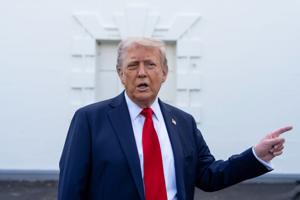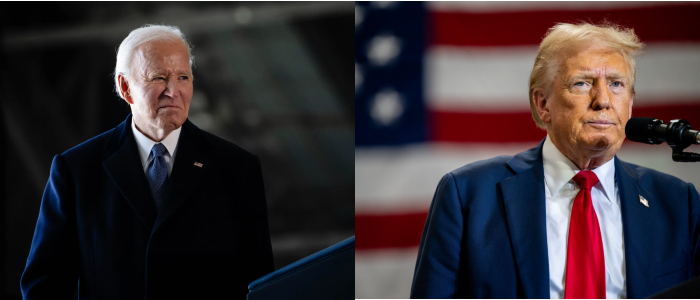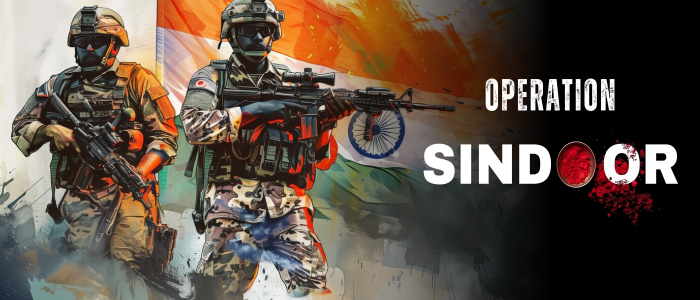KYIV, Ukraine — President Donald Trump lashed out Wednesday, accusing Ukrainian President Volodymyr Zelenskyy of prolonging the "killing field" after Zelenskyy pushed back on ceding Crimea to Russia as part of a potential peace plan. President Donald Trump speaks with reporters Wednesday at the White House in Washington. Ukraine's leader ruled out the idea of ceding territory to Russia in any deal Tuesday before talks set for Wednesday in London among U.
S., European and Ukrainian officials. "There is nothing to talk about.

It is our land, the land of the Ukrainian people," Zelenskyy said. During similar talks last week in Paris, U.S.
officials presented a proposal that included allowing Russia to keep control of occupied Ukrainian territory as part of a deal, according to a European official familiar with the matter who was not authorized to comment publicly and spoke on condition of anonymity. Trump called Zelenkyy's pushback "very harmful" to talks. "Nobody is asking Zelenskyy to recognize Crimea as Russian Territory but, if he wants Crimea, why didn't they fight for it eleven years ago when it was handed over to Russia without a shot being fired?" he wrote on social media.
Russia annexed Crimea in 2014 after sending troops to overrun it. Weeks later, Moscow-backed separatists launched an uprising in eastern Ukraine, battling Kyiv's forces. Trump also asserted they were close to a deal and Ukraine's leader can have peace or "he can fight for another three years before losing the whole Country," adding that Zelenskyy's statement "will do nothing but prolong the 'killing field,' and nobody wants that!" Ukrainian President Volodymyr Zelenskyy speaks Tuesday during a news conference in Kyiv, Ukraine.
Wednesday's meeting was pared back at the last minute, while Vice President JD Vance said negotiations are reaching a moment of truth. "We've issued a very explicit proposal to both the Russians and the Ukrainians, and it's time for them to either say 'yes' or for the United States to walk away from this process," Vance told reporters during a visit to India. He said it was "a very fair proposal" that would "freeze the territorial lines at some level close to where they are today," with both sides having to give up some territory they currently hold.
He did not provide details. A senior European official familiar with the ongoing talks involving the American team said a proposal that the U.S.
says is "final" initially was presented last week in Paris, where it was described as "just ideas" — and that they could be changed. When those "ideas" surfaced in media reports, Ukrainian officials were surprised to find that Washington portrayed them as final, according to the official, who was not authorized to comment publicly and spoke on condition of anonymity. A damaged bus is seen Wednesday after it was hit by the Russian drone in Marhanets, Dnipropetrovsk region.
Zelenskyy said Wednesday that Ukraine is ready for any format of negotiations that might bring a ceasefire and open the door to full peace negotiations, as he mourned nine civilians killed when a Russian drone struck a bus earlier in the day. The attack in Marganets, in eastern Ukraine's Dnipropetrovsk region, killed eight women and one man, regional head Serhii Lysak wrote on social media. More than 40 people were injured, he said.
"We insist on an immediate, complete and unconditional ceasefire," Zelenskyy wrote on social media, in accordance with a proposal he said the U.S. tabled six weeks ago.
Ukraine and some Western European governments accused Russian President Vladimir Putin of dragging his feet on that proposal as his army tries to capture more Ukrainian land. Western analysts say Moscow is in no rush to conclude peace talks because it has battlefield momentum. Residents walk past damaged buildings Wednesday in central Pokrovsk, the site of heavy battles with Russian troops in the Donetsk region, Ukraine.
U.K. Foreign Secretary David Lammy said the talks in London to find an end to the more than three-year war would involve only lower-ranking officials, after the U.
S. State Department said Tuesday that Secretary of State Marco Rubio was unable to attend because of a scheduling issue. Rubio's abrupt cancellation raised doubts about the direction of negotiations.
He indicated Wednesday's meeting could be decisive in determining whether the Trump administration remains engaged. Commenting on those attending the talks, Kremlin spokesman Dmitry Peskov said, "as far as we understand, they so far have failed to bring their positions closer on some issues." He said the Kremlin was still in consultations with American officials but wouldn't publicly discuss details.
U.S. special envoy Steve Witkoff is expected to visit Moscow again this week, according to Russian officials.
Even achieving a limited, 30-day ceasefire was beyond the reach of negotiators, as both sides continue to attack each other along the 620-mile front line and launch long-range strikes. Trump has pushed for an end to the war and said last week that negotiations were "coming to a head." That comment came after Rubio suggested the U.
S. might soon back away from negotiations if they don't progress. Those still attending Wednesday's meeting include retired Lt.
Gen. Keith Kellogg, Trump's envoy for Ukraine and Russia. Some European allies are wary of the American proposal for Ukraine to exchange land for peace.
But an official said some allies acknowledge that Russia is firmly entrenched wholly or partially in five regions of Ukraine: Crimea, Luhansk, Donetsk, Zaporizhzhia and Kherson. March 1, 2025: 80 Year Transatlantic Alliance Get Government & Politics updates in your inbox! Stay up-to-date on the latest in local and national government and political topics with our newsletter..
Politics

Trump says Zelenskyy is prolonging war in Ukraine by resisting calls to cede Crimea

Ukraine and some allies accused Russian President Vladimir Putin of dragging his feet as his army tries to capture more Ukrainian land.















